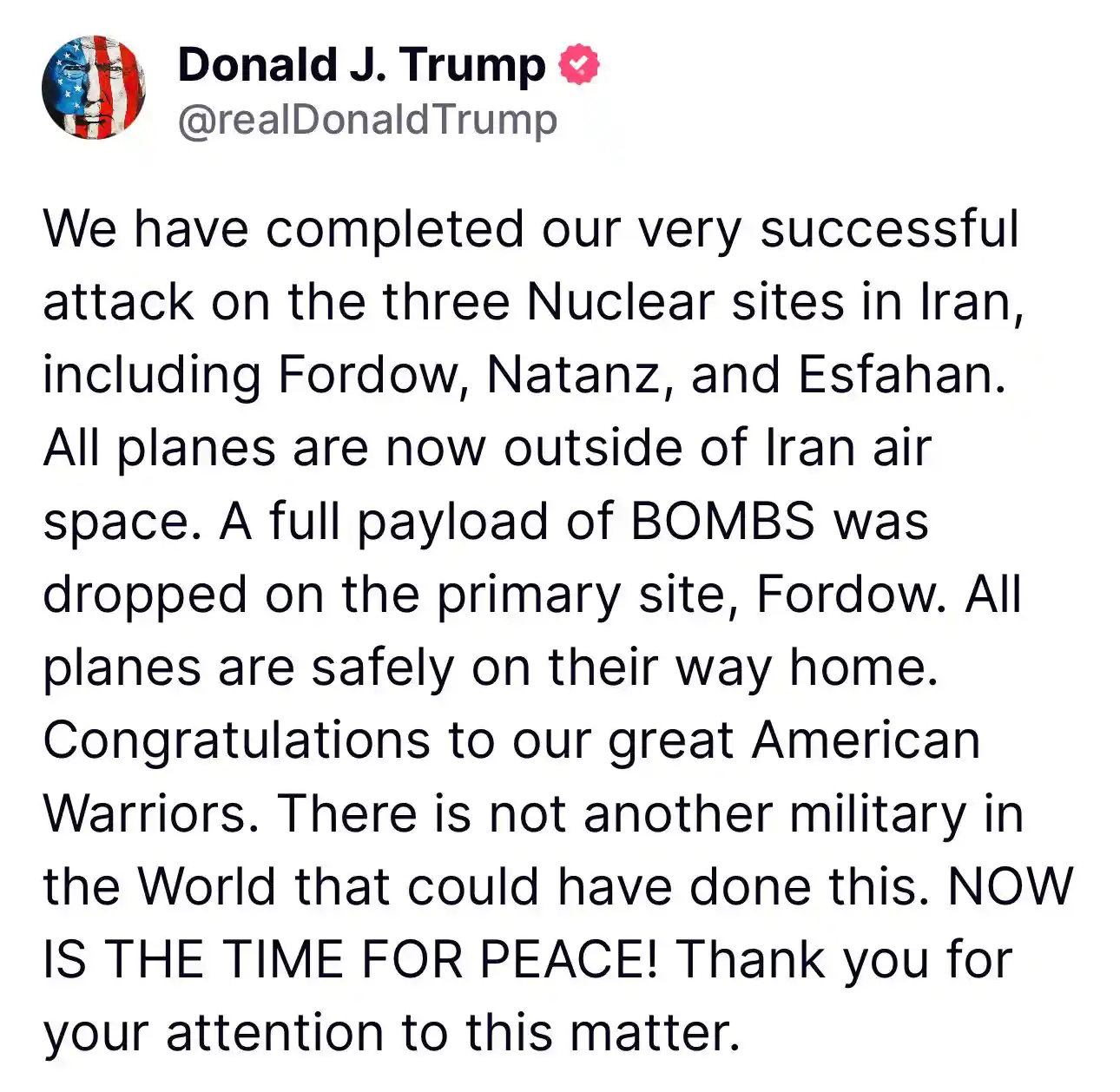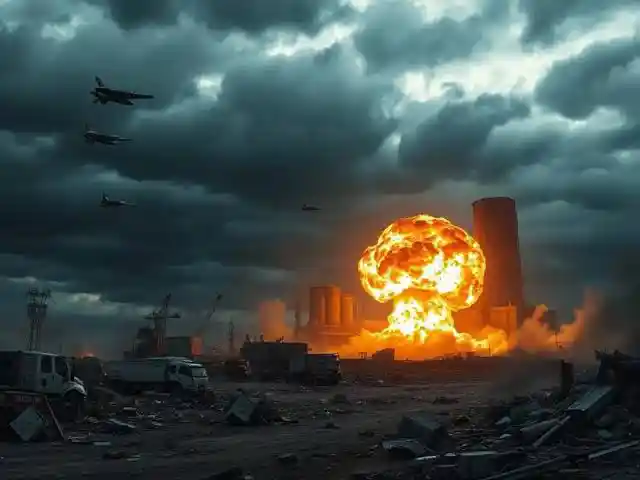U.S Bombs 3 Nuclear Sites in IRAN | Fordow, Natanz & Isfahan Targeted
The ongoing tensions in the Middle East escalated dramatically on Saturday as the United States launched coordinated military strikes on three of Iran’s most significant nuclear facilities—Fordow, Natanz, and Isfahan. The strikes mark a major turning point in the already volatile conflict involving Israel, Iran, and Western powers.
TJ News Nigeria reports that U.S. President Donald Trump confirmed the operation in a televised address, stating that the airstrikes were “necessary to neutralize imminent threats posed by Iran’s nuclear capabilities.”
According to military sources, the attack utilized B-2 stealth bombers equipped with Massive Ordnance Penetrator (MOP) bombs, along with submarine-launched Tomahawk cruise missiles targeting Iran’s underground and above-ground enrichment infrastructure.
Nuclear Facilities Targeted in Precision Strikes
1. Fordow Fuel Enrichment Plant (FFEP)
- Location: Near the holy city of Qom, Iran
- Status Before Attack: Operational with hundreds of centrifuges enriching uranium
- Damage Reported: U.S. intelligence suggests significant destruction to underground centrifuge halls, although Iran’s state media downplayed the extent.
2. Natanz Nuclear Facility
- Location: Central Isfahan Province
- Strategic Importance: Iran’s largest uranium enrichment site
- Damage Reported: Satellite imagery reviewed by analysts indicates several structures have been destroyed or severely damaged.
3. Isfahan Nuclear Technology Center
- Location: Isfahan, Iran
- Facilities: Uranium conversion operations and nuclear research
- Damage Reported: Reports indicate heavy damage to research sections, with plumes of smoke seen rising from the site shortly after the strikes.

U.S. Justification and Global Reactions
President Trump described the strikes as a “spectacular military success,” emphasizing that the operation was conducted in coordination with Israel, which has faced direct missile threats from Iranian-backed groups in recent weeks.
“These nuclear sites were not just a threat to Israel, but to the peace and security of the entire world,” Trump said.
However, the global community has expressed alarm. United Nations Secretary-General António Guterres urged “maximum restraint by all parties,” warning that the situation risks spiraling into a full-scale regional war.
Iran’s Foreign Ministry, in a brief statement, condemned the attacks, vowed retaliation, and reiterated that its nuclear program is for peaceful purposes, despite repeated international skepticism.
Regional Escalation Expected
Military analysts suggest that Iran is likely to retaliate via proxy groups across the Middle East, particularly Hezbollah in Lebanon and militias in Syria and Iraq. Missile and drone attacks against U.S. military installations and Israeli cities are considered imminent threats.
The strikes follow weeks of rising hostilities between Israel and Iran, including Iranian drone attacks on Tel Aviv and Israeli counter-strikes in Damascus. This latest move by the United States significantly escalates the geopolitical stakes.
What It Means for Global Markets
With the bombing of critical Iranian infrastructure, oil prices spiked immediately, crossing $95 per barrel in early trading, as investors brace for potential disruptions in Middle Eastern energy supplies.
This military operation also adds pressure on global currency markets, particularly for developing economies like Nigeria, where the Dollar to Naira Exchange Rate (check latest rates here) could experience further volatility due to rising crude prices and geopolitical instability.
For Nigerians tracking Business News in Nigeria, the unfolding situation is likely to have a cascading effect on inflation, fuel subsidy discussions, and foreign direct investment (read more business reports here).
Legal Controversy Over U.S. Military Action
Critics of the U.S. strikes, including leading members of the U.S. Congress, argue that President Trump may have overstepped executive authority by initiating military action without congressional approval. Legal scholars have pointed out that while the President has broad powers in cases of imminent threats, the targeted bombing of nuclear sites in another sovereign nation raises significant constitutional questions.
Analysis: A New Phase in the Middle East Conflict
The coordinated bombing of Iran’s nuclear infrastructure by the United States signals a new phase of direct military confrontation between Washington and Tehran, previously limited to sanctions, cyber warfare, and proxy conflicts.
Iran’s potential retaliation may trigger NATO consultations, drawing European powers deeper into the escalating crisis. Furthermore, with the attack on nuclear sites, concerns about nuclear proliferation and radiological hazards are also rising, despite no immediate reports of radiation leakage from the bombed facilities.
Global Response and What Comes Next
- European Union (EU): Called for an emergency meeting of the UN Security Council.
- Russia and China: Condemned the strikes, calling them “reckless and destabilizing.”
- Israel: Praised the U.S. action as “courageous” and “necessary for global security.”
With tensions already at boiling point, the coming days will be critical in determining whether diplomacy can de-escalate the conflict or whether the region is sliding toward a broader regional war.
For real-time updates on this developing story, stay connected to TJ News Nigeria.
✔ Read Also:
TJ News Nigeria — Reporting Facts, Not Hype.






